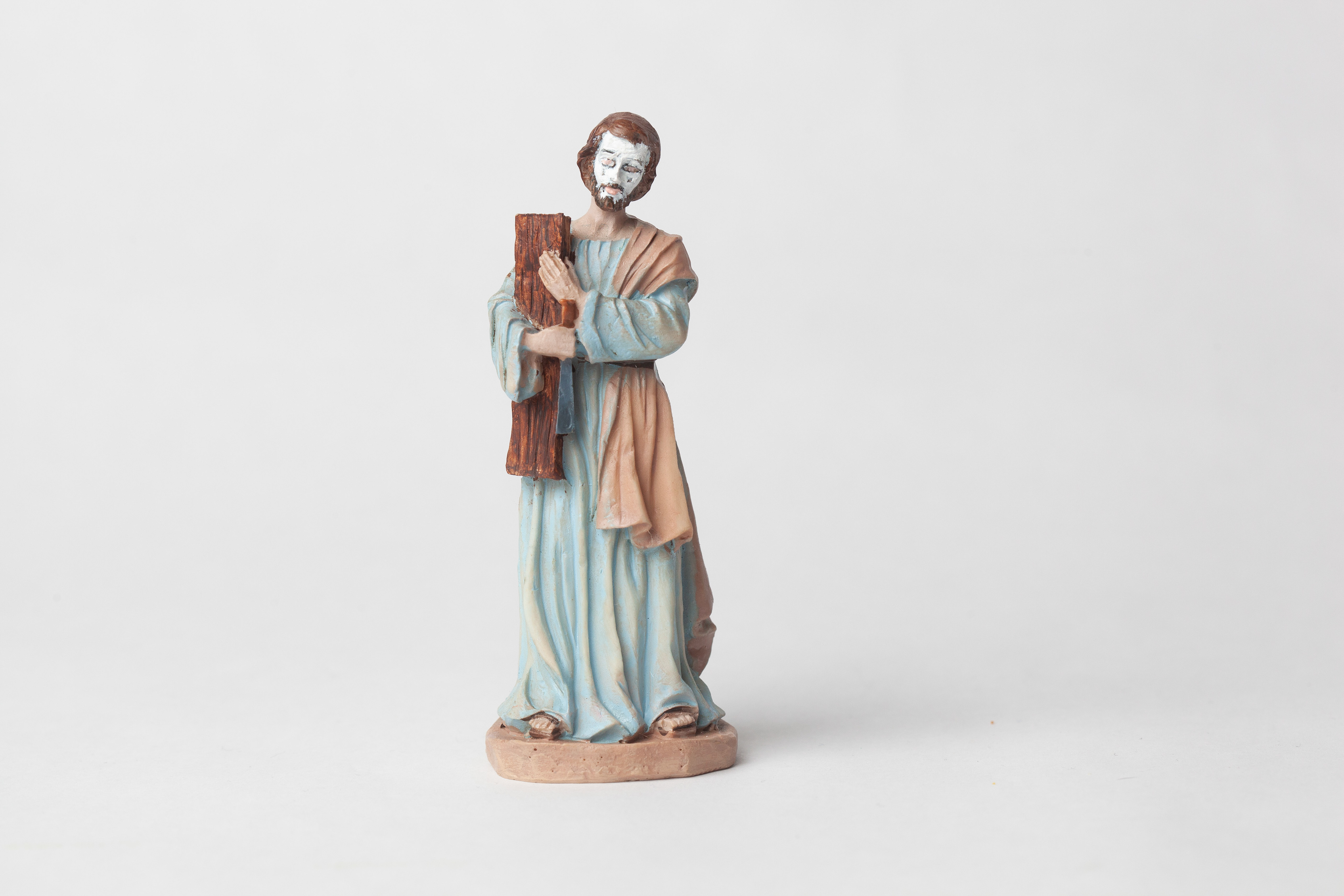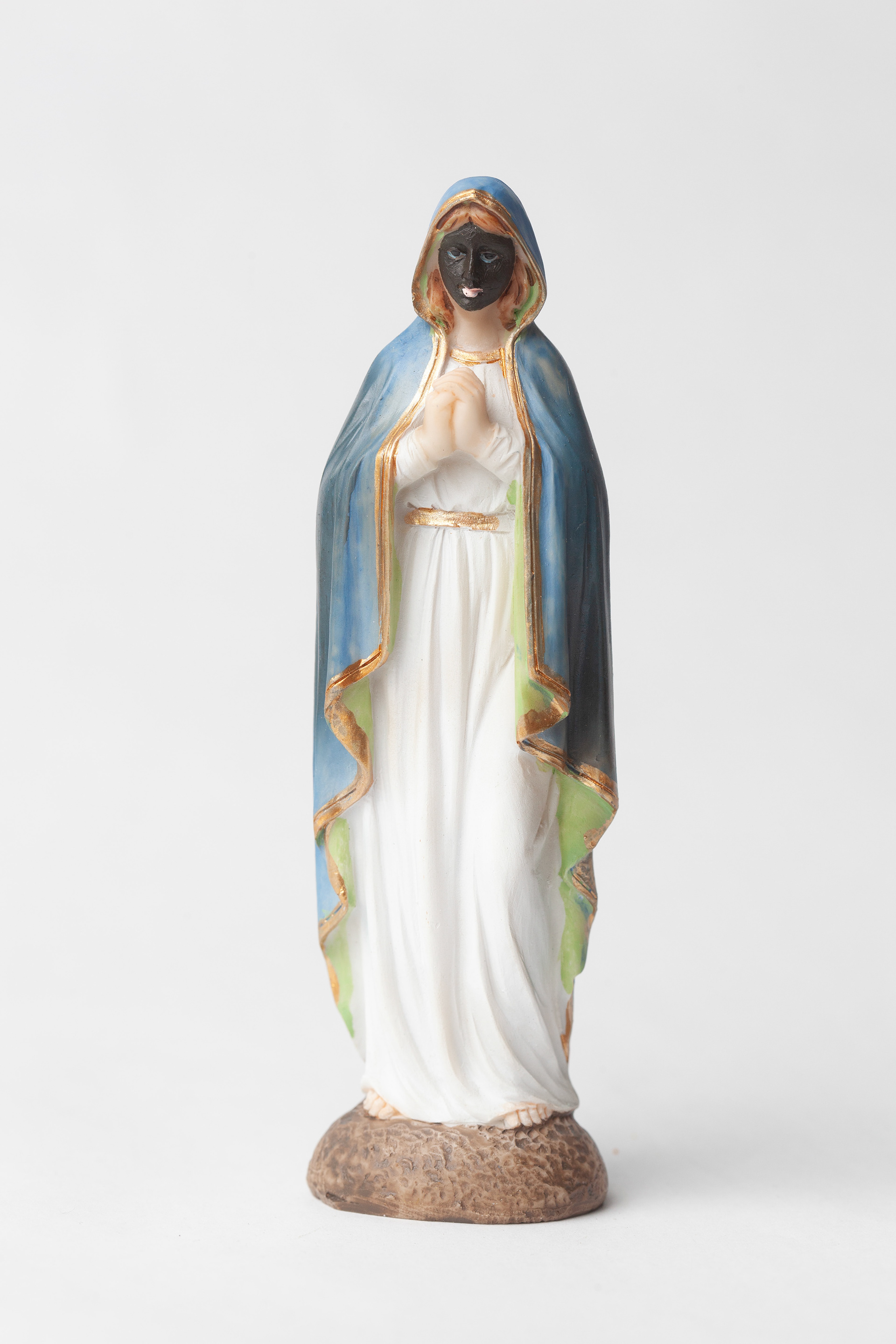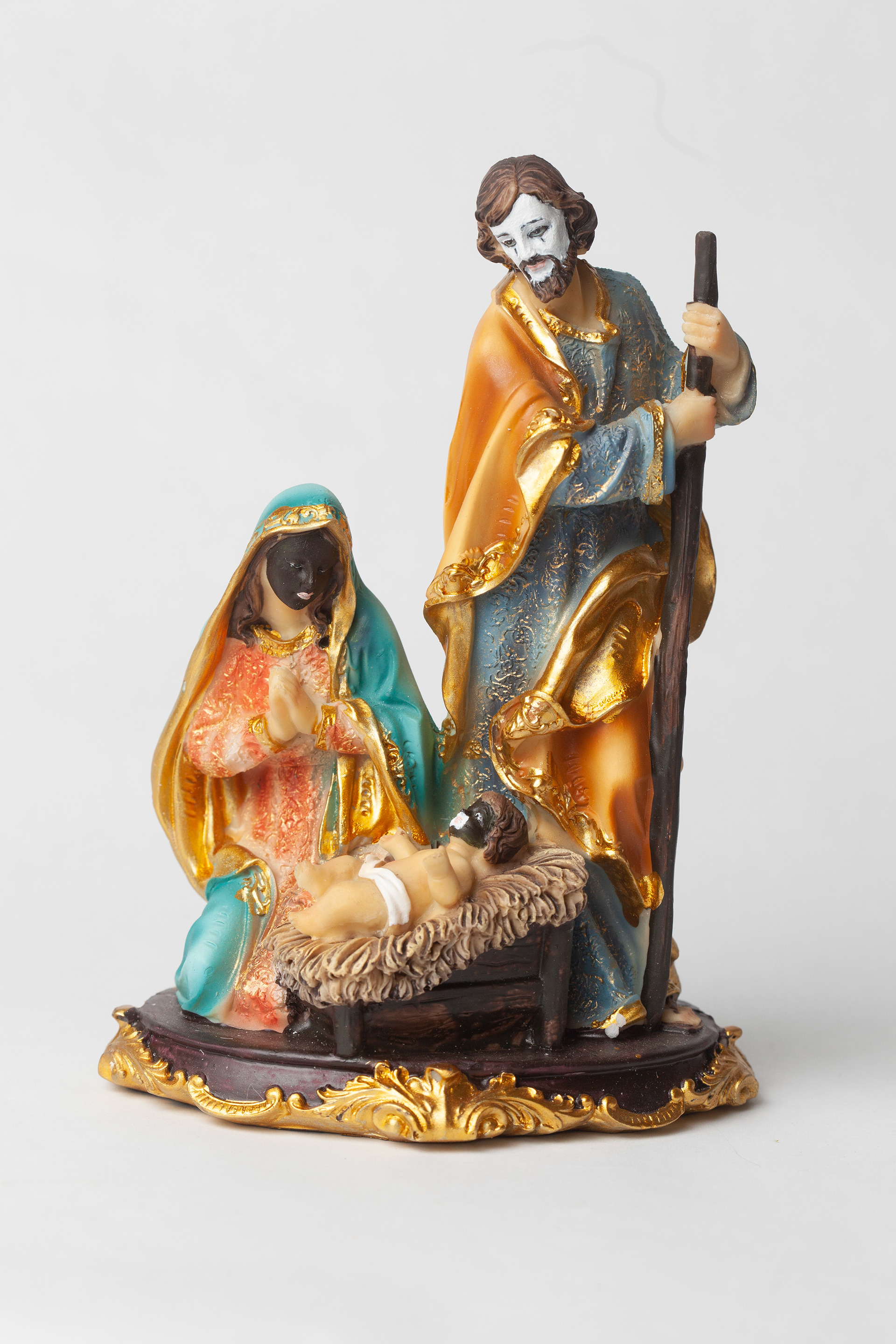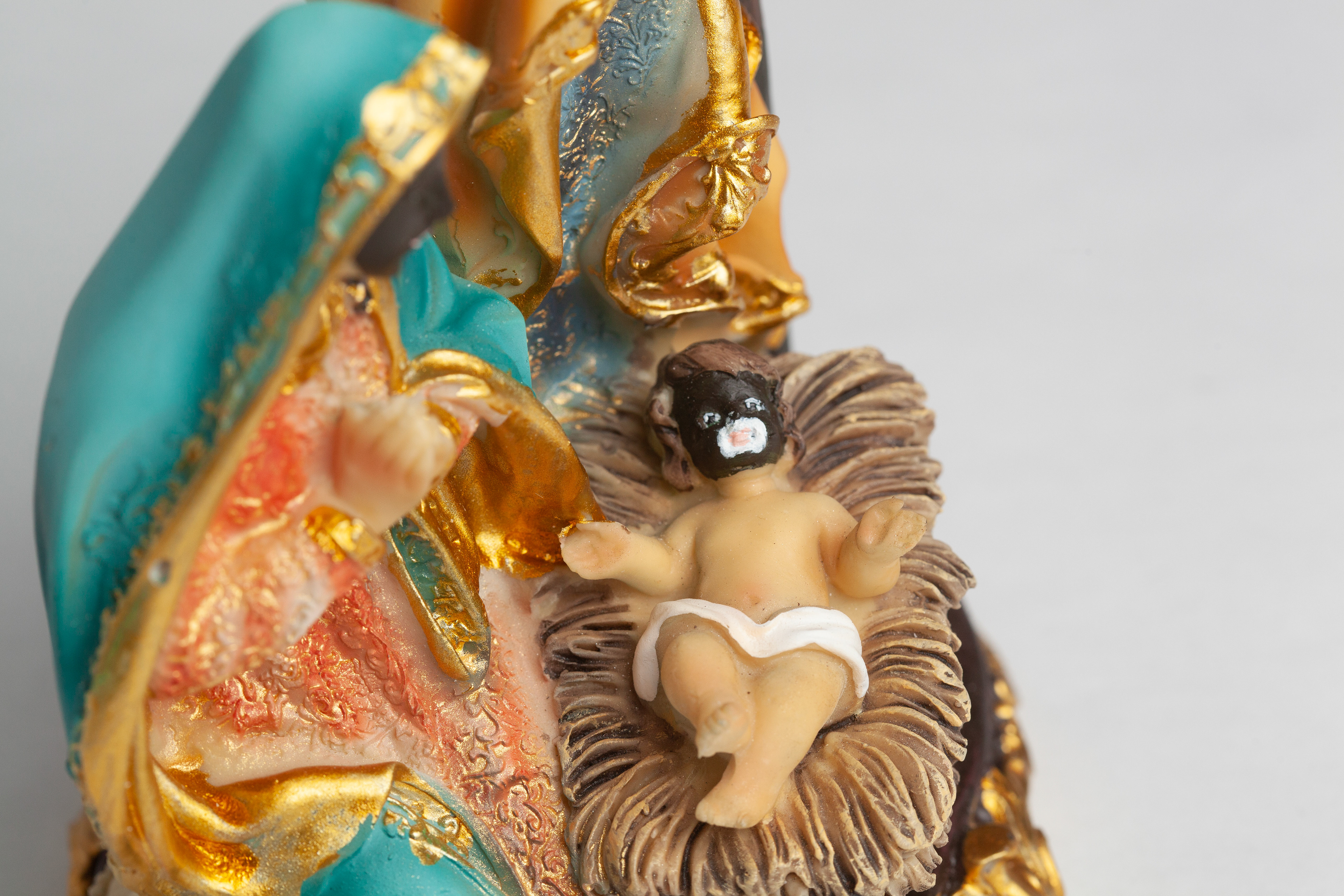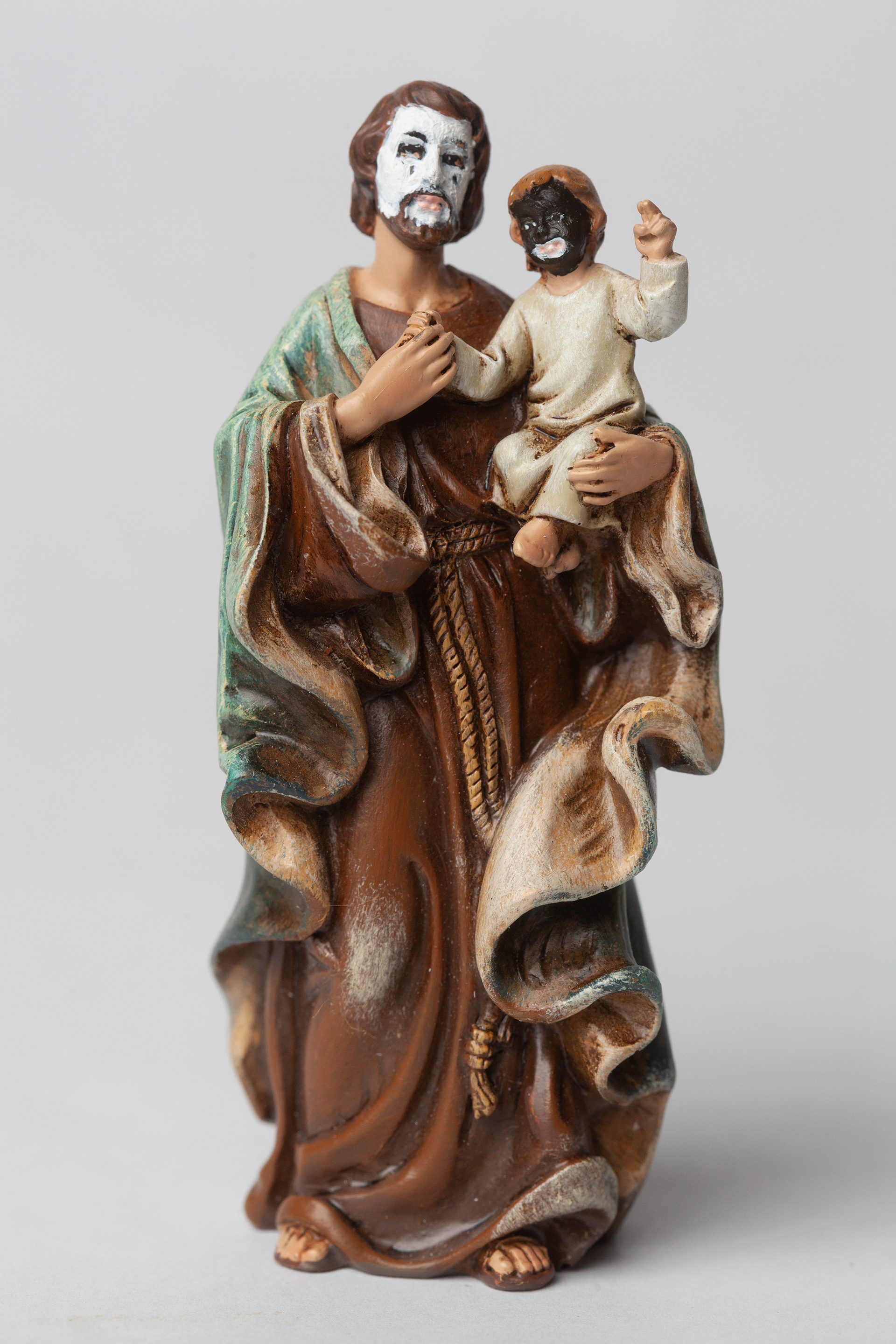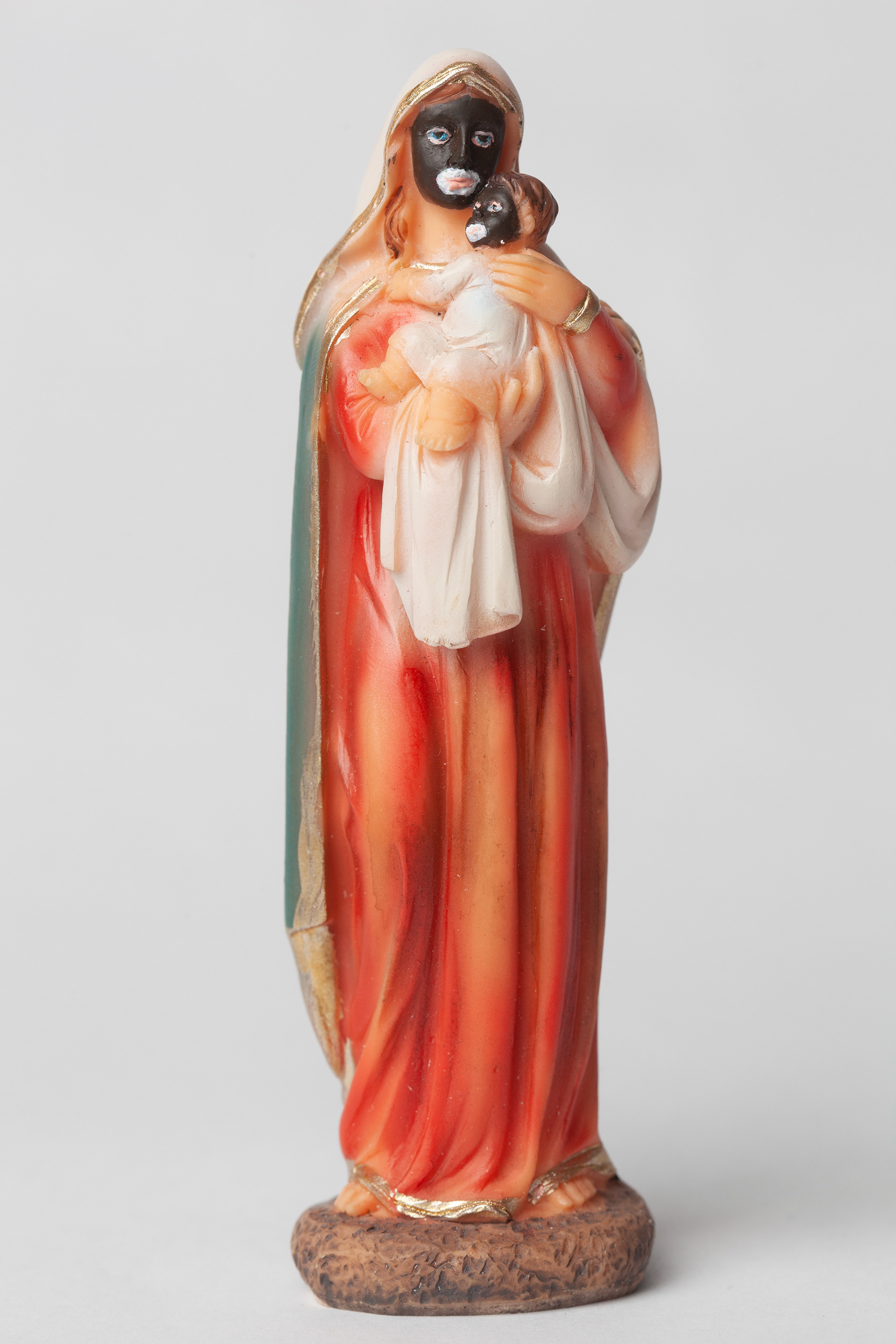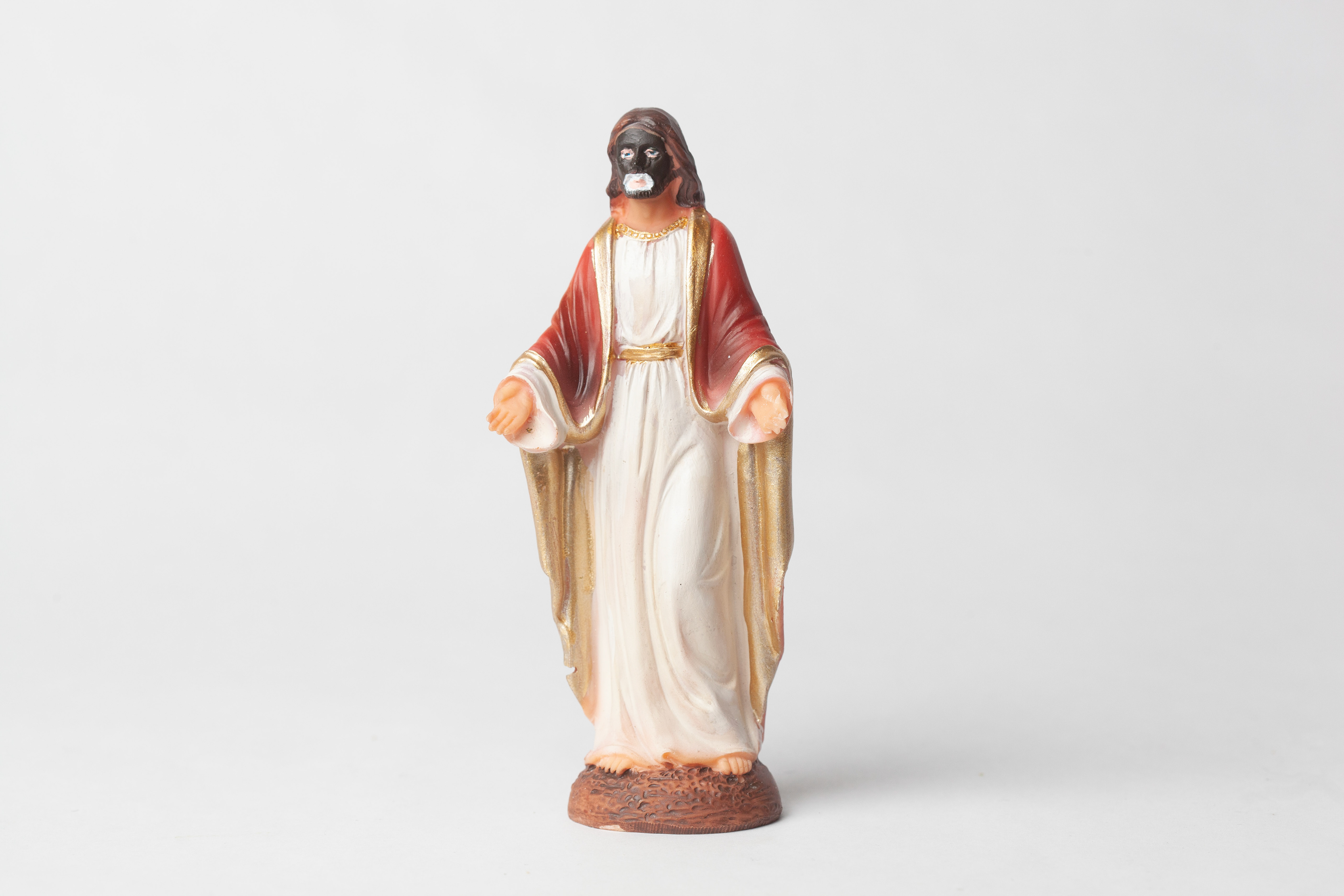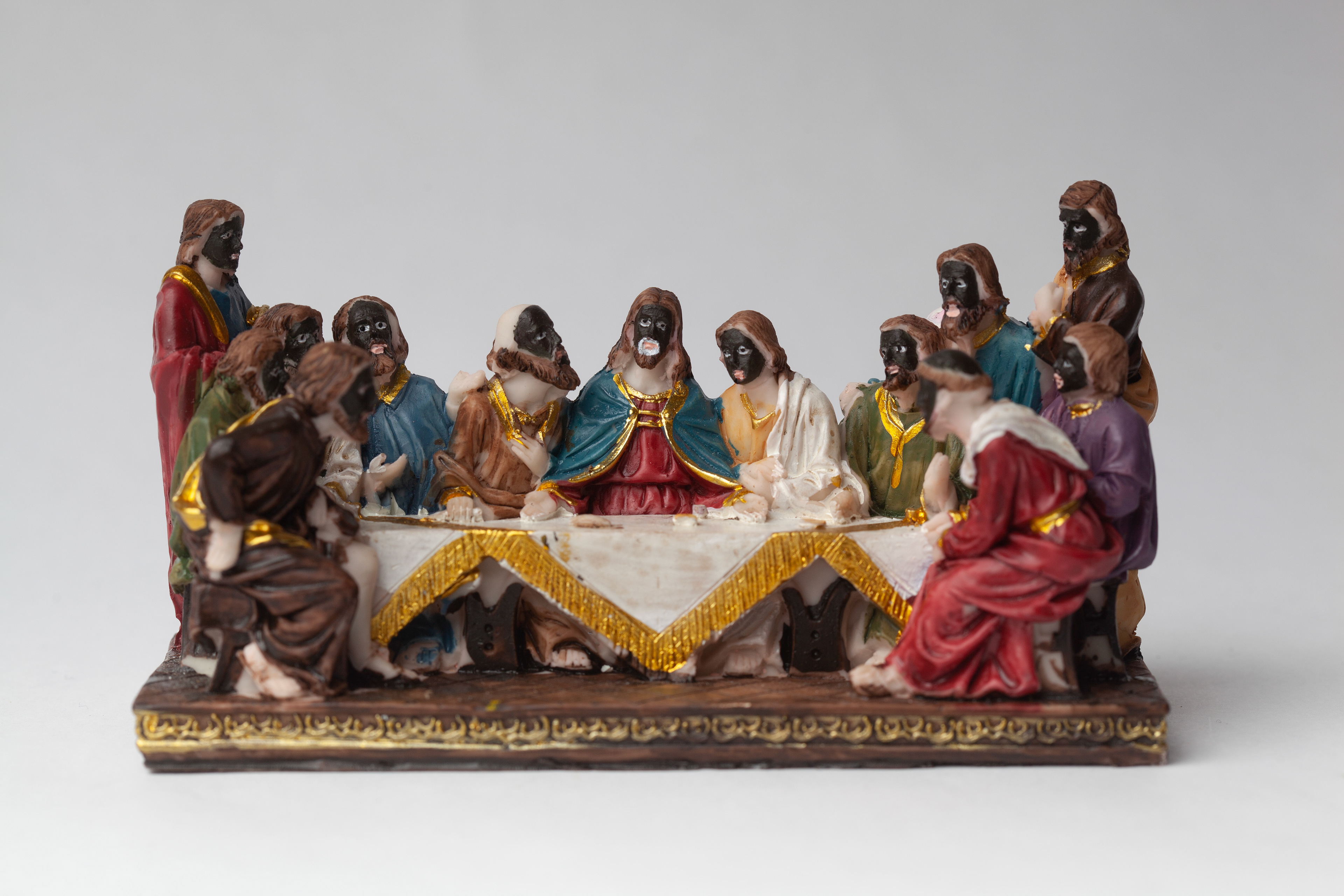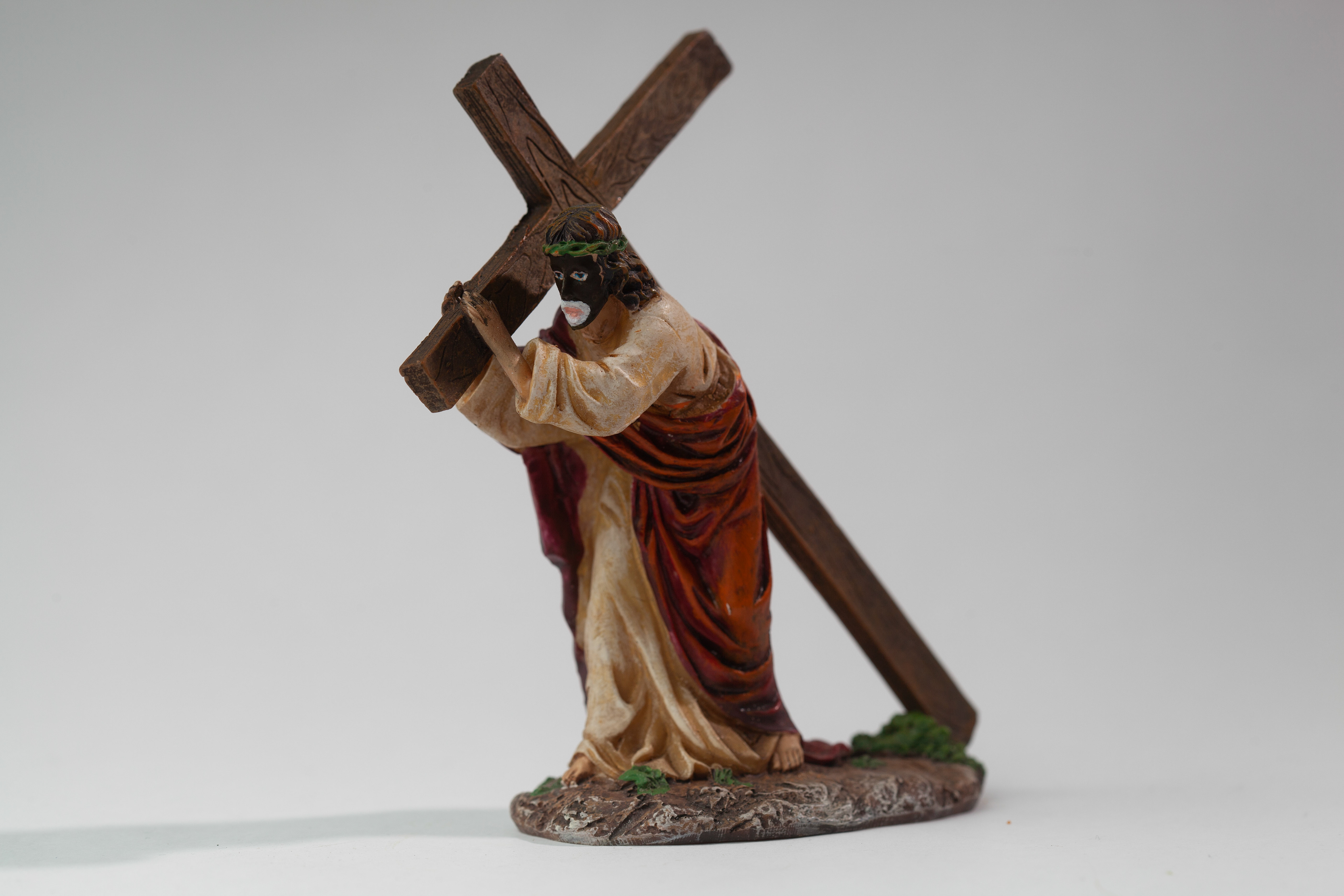The "Bondage" series presents a thought-provoking exploration of European Jesus Christ with a black face. The series challenges traditional representations of a savior and engages complex issues of race, religion, idolatry, human bondage, and capitalism.
Each artwork in the series confronts audiences with a striking reinterpretation of Christianity, traditionally portrayed as white in art and religious imagery, now with black painted faces. This deliberate choice serves as a powerful symbol of resistance against historical whitewashing and racial biases within religious iconography.
The series encourages viewers to reconsider their preconceived notions of religious imagery and the inherent racialization of divinity. By presenting figurines of Jesus with black face, the artworks challenge traditional interpretations of idolatry, emphasizing the universality of divine representation and the intrinsic value of all human beings above objectification and idols.
Furthermore, the "Bondage" series delves into the interconnected themes of human bondage and capitalism as they relate to blackness and slavery. Through each depiction, the series highlights the historical exploitation and dehumanization of black bodies under systems of slavery perpetuated form colonialism to the present by capitalist economies.
The blackness of Jesus Christ serves as a poignant reminder of the enduring legacy of slavery and the ongoing struggle for racial justice and equality. It prompts viewers to confront uncomfortable truths about the intersectionality of race, power, and oppression, and to reflect on the ways in which capitalism has historically profited from the commodification and exploitation of black lives.
Ultimately, the "Bondage" series challenges audiences to confront their own complicity in systems of oppression and to strive towards a more inclusive and equitable society. It calls upon viewers to engage in critical dialogue and action to dismantle structures of racism, inequality, and injustice, and to embrace the inherent dignity and humanity of all individuals, regardless of race or background.
